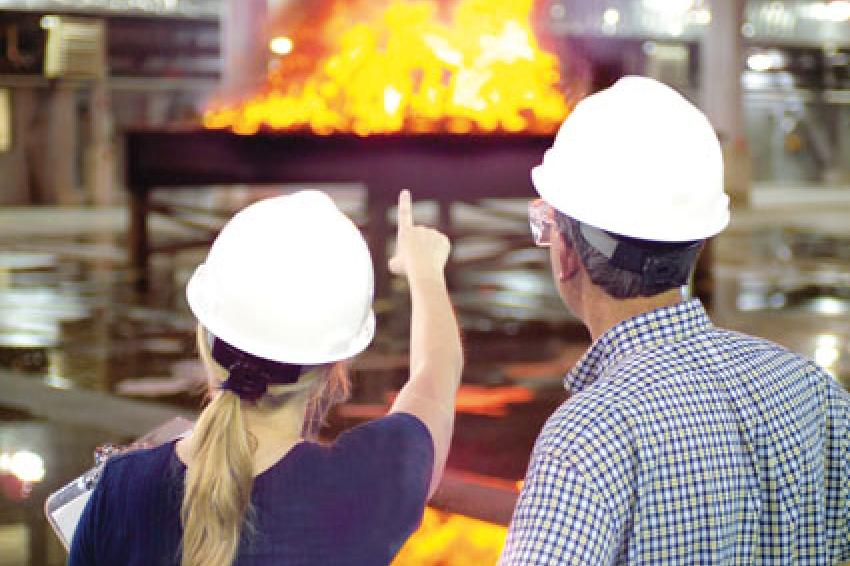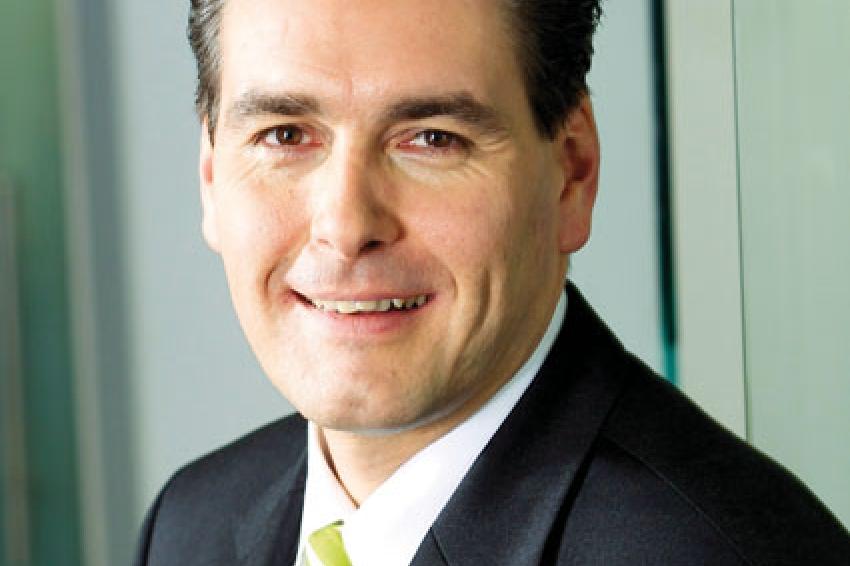Prepared for the Worst Case Scenario?
Production Reliability in the Pharmaceutical Industry
Small Flame, Big Consequences - It was only a little fire, confined to a small area of a medicine production line, but the flames caused far bigger damages: At first, the production had to be stopped. Next, the company was no longer able to deliver its products in time. Finally, the income seriously declined and reputation was damaged. What if an important anti-flu drug cannot be produced in a sufficient quantity as a direct consequence of a fire? In times of a pandemic, this scenario is not only frightening companies from the pharmaceutical industry.
Like the chemical industry, drug producers work with sensitive and inflammable substances. The complex production techniques are highly susceptible to failures and require sound safety measures. These safety measures should not be limited to the risk of direct fire losses - indirect fire losses, like damages caused by smoke or soot, are of high importance as well. On the one hand, contaminations could make products worthless. On the other hand, a loss of the clean-room certification often affects the production for a very long time, as in many cases the certification process needs to be passed again from the very beginning - step by step. Fumes, fire water, rain and technical failures could affect clean room conditions as well. Therefore, many producers place great importance to comprehensive prevention to avoid production downtimes and supply bottlenecks under all circumstances.
Avoiding Sources of Danger
FM Global is a reliable partner in this area. First, the industrial insurer analyses potential sources of danger at the facilities of its clients. Second, FM Global develops a tailor made risk management in close cooperation with the client. This concept incorporates international production structures as well as logistics supply chains. The use of production advantages in foreign countries is closely linked to longer supply chains between producers and customers. It is of increasing importance to protect these supply chains. Thus, not only clients might be waiting in vain for their drugs in case of an operations disruption. The reputation of a company and the value of its product brands could be seriously affected as well in such an event.
But the pharmaceutical industry does not only face fire hazards. Some materials and substances also pose a risk of explosion, in particular with regard to dust particles: even non-hazardous raw materials can be highly explosive when particular dust and air mixtures exist. Dust collection and explosion suppression systems are appropriate solutions to avoid explosions.
Another crucial risk is the breakdown or loss of supply services. An electrical power outage does not only result in machine failures. The air conditioning system, air filters - nearly all equipment that is necessary to guarantee a specific atmosphere - do not work without electric power. Thus, in case of electrical power outages, clean- room conditions can often no longer be maintained. Furthermore, some substances need to be cooled until they are processed. A failure of the cooling system might result in chemical reactions of these substances. Often, this means that they are no longer usable. Deionized water is of high importance for drug production as well. Since transporting this water in containers would neutralize the deionization, it is absolutely essential that the deionization takes place within the drug production process. Any interference here would be disruptive for the whole production process.
Reducing The Risk
To identify all these risks and in order to illustrate the potential for risk reduction, FM Global uses many different approaches. Cooperation with its clients is based upon FM Global's engineers' analysis of the risk potential for each of the clients' sites. These special chemical risk engineers can rely on many years of experience in the pharmaceutical industry and examine the production processes and operating procedures directly on site. Depending on the identified risks, loss scenarios are defined and associated prevention measures are developed. Before these measures are finally implemented, they are coordinated and prioritized in close liaison with the client. During the whole process, the focus is always on risk minimization. Often FM Global's current clients seek for the insurer's help when they plan to re-build facilities or build up new ones - a strategy that is very thoughtful and illustrates the close cooperation. By consulting FM Global's engineers before construction work even starts, effective risk minimization measures can be developed in the planning phase at comparatively moderate costs.
Custom-fit Solution
Against the background of the complex production processes in the pharmaceutical industry, off the shelf solutions do not exist. Each case requires a tailor-made solution of risk minimization. These could include the installation of redundancies regarding the utility supply and disposal system, for example. A breakdown of the filter plant could be compensated by implementing a facility that enables the company to store sewage for a limited time. Power ring mains reduce the dependency on single power lead-ins. In case of a breakdown, an alternative lead-in could be activated. In the area of physical fire protection, the focus is not only on explosive and fire hazardous raw materials. Furthermore, the risks emerging from inflammable storage containers and the mechanical generation of heat are analysed and reduced to a minimum as well.
To offer those intensive consulting services, FM Global's special chemical risk engineers need to have in-depth industry knowledge. Besides their chemical engineering studies, the engineers are further educated both internally and externally. FM Global's education program concentrates on industry-specific special knowledge that is required in the individual working environment of the respective global engineer. This includes knowledge about the underlying chemical production processes. As many risks depend on and impact each other in the pharmaceutical industry, an integrated risk evaluation is indispensable. Additionally, the necessary special knowledge of the engineers is supplemented permanently by the scientific research at FM Global's Research Campus.
Investigating Risk
At FM Global's 648 hectare Research Campus in Rhode Island, hazards like fires, explosions, storms, floods and earthquakes can be simulated and analysed in different laboratories. Regarding fire simulations, the Research Campus has a 3,000m2 meters hall available where fires up to 1,000° Ce heat can be simulated. Inside this hall, engineers re-create the client's production facilities true to scale and let them go up in flames in a controlled manner afterwards - a test that is absolutely worth the effort. Afterwards, the engineers know exactly which fire-extinguishing system fits best - with regards to effectiveness and costs.
Fire suppression systems with a capacity of up to 13,000 l of water per minute and a maximum pressure of 17 bar for different fire loads are installed within the hall.
In the other laboratories of the Research Campus scientists work with the same thoroughness to minimize explosion risks with regard to different liquid and powdery raw materials. The explosiveness of air dust mixtures can not just be examined with regard to alternative mixing-ratios, but also with regard to different powders and dusts.
To secure production reliability, companies within the pharmaceutical industry need to meet high requirements. Material damages need to be covered, whereas image losses and drifting clients are risks that can not be compensated by any insurer. This is why the development of an integrated strategy to minimize inevitable risks based on the findings of scientific research cannot start early enough.
Contact
FM Insurance Company
Eschersheimer Landstr. 55
60322 Frankfurt am Main
Germany
+49 69 15406 0
+49 69 15406 199







